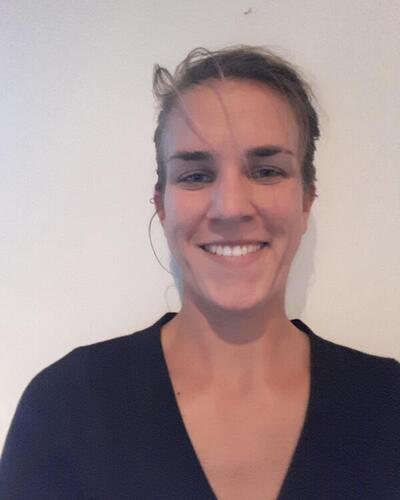- E-mailfilippa.fransner@uib.no
- Visitor AddressAllégaten 705007 Bergen
- Postal AddressPostboks 78035020 Bergen
I'm interested in the interactions between ocean physics and biogeochemistry, and how it shapes the marine environment. I'm mainly working with numerical models, and like to combine them with data from the field. My research is currently focusing on near-time (interannual-to-decadal) biogeochemical predictions, including primary production and air-sea CO2 exchange.
Academic article
- (2023). Trivial gain of downscaling in future projections of higher trophic levels in the Nordic and Barents Seas. Fisheries Oceanography. 479-493.
- (2023). Phytoplankton abundance in the Barents Sea is predictable up to five years in advance. Communications Earth & Environment. 9 pages.
- (2023). Disentangling the impact of Atlantic Niño on sea-air CO<inf>2</inf> flux. Nature Communications.
- (2023). Contrasting responses of the ocean’s oxygen minimum zones to artificial re-oxygenation. Environmental Research Letters.
- (2022). Acidification of the Nordic Seas. Biogeosciences. 979-1012.
- (2022). A standard protocol for describing the evaluation of ecological models. Ecological Modelling. 11 pages.
- (2021). Predictable variations of the carbon sinks and atmospheric CO2 growth in a multi‐model framework. Geophysical Research Letters.
- (2021). NorCPM1 and its contribution to CMIP6 DCPP. Geoscientific Model Development. 7073-7116.
- (2020). Ocean Biogeochemical Predictions—Initialization and Limits of Predictability. Frontiers in Marine Science.
- (2020). Meridional Ocean Carbon Transport. Global Biogeochemical Cycles.
- (2019). Remineralization rate of terrestrial DOC as inferred from CO2 supersaturated coastal waters. Biogeosciences. 863-879.
- (2019). Nemo-Nordic 1.0: A NEMO-based ocean model for the Baltic and North seas - Research and operational applications. Geoscientific Model Development. 363-386.
- (2019). Loop current variability as trigger of coherent gulf stream transport anomalies. Journal of Physical Oceanography. 2115-2132.
- (2019). Changes of the overturning of a fjord-type estuary in a warmer climate, a test case in the Northern Baltic sea. Continental Shelf Research. 1-10.
Report
- (2022). Trender i havforsuring og antropogent karbon i de nordiske hav, Nordsjøen og Skagerrak. .
- (2020). Best practices for ecological model evaluation II: Workshop Report. .
- (2020). Best practices for ecological model evaluation I : Workshop Report. .
Lecture
- (2023). A standard protocol for describing the evaluation of ecological models.
- (2019). Biogeochemical Predictions - Initialization and Sources of Potential Predictability.
- (2019). Biogeochemical Predictions - An update from Bergen.
Popular scientific lecture
- (2020). Forecasting the Ocean - from temperature to fish.
Academic lecture
- (2023). Multiyear phytoplankton predictability in the Barents Sea.
- (2023). How can Functional Groups be Affected by Low and High Carbon Emissions Scenarios in the Barents Sea?
- (2022). Skillful Prediction of Barents Sea Phytoplankton Concentration.
Poster
- (2021). Predictability of Barents Sea Phytoplankton Concentration.
- (2020). Ocean Biogeochemical Predictions.
More information in national current research information system (CRIStin)
Nansen Legacy
Fields of competence
